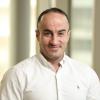Farzad S. Dizaji

About
Having enough knowledge to teach a student is one side of the coin, but the methodology you intend to deliver the knowledge is another side that requires additional learning and practice. Regardless of how much knowledgeable you are; you should transfer your information effectively in such a way that a student can understand it properly, without memorizing the material. I also believe that in order to be an effective teacher, you must be a lifelong learner and create that spirit in your students. I grew up in a teacher-based family. My father was a mathematics teacher and from my childhood, I always remember how he influenced my mind indirectly to have a passion for teaching. So, I was fortunate to gain a perspective on teaching in the early stages of my childhood. He always reminded me of how teaching is crucial for society and my mindset has been framed by a saying he often shared with me:” No matter what you are teaching, always be careful how you behave with your students. They are next-generation and whatever you teach will be reflected in your society. So, teaching is not merely a simple job, it is the foundation of a society and if you build it well, it will be improved gradually”.
I received my first Master of Science degree in the realm of earthquake engineering from the Iran University of Science & Technology (Centre of excellence for fundamental structural studies). Being passionate about the mathematics and fundamental concepts of topics in engineering, I decided to concentrate on the more theoretical aspects of my research field. Thus, I chose to work on “Graph theoretical methods and Algebra methods for optimizing structural matrices” under the supervision of Prof. Ali Kaveh who is well-known for his theoretical research on Structural Engineering. After studying graph theory and getting familiar with its concepts I could come up with some novel techniques which led to an improvement in optimizing structural matrices and implementing a few of them. I also published a couple of papers in different journals from my thesis. What’s more, I got my second master of science in structural engineering from the University of Virginia. For my thesis, I proposed and worked on two structural mitigation systems. One of them was funded by NSF and finally became my thesis title. In the other system, I just wrote 26 pages of the proposal.
Engaging students and having them care about a subject matter without memorizing the materials can be difficult, but it is crucial to my teaching philosophy. I believe that to teach mathematical courses to the students, a good candidate should not only have a great mathematical background but also be familiar with engineering frameworks to convey the concepts more effectively. Having an engineering background helps me to look at mathematics in a more sensible fashion rather than just as an abstract concept and I believe that this viewpoint can be helpful to me to be a successful lecturer.
Education
B.Sc. in Civil Engineering, University of Tabriz, Iran, 2005
M.Sc. in Earthquake Engineering and Applied Mathematics, Iran University of Science & Technology (centre of excellence for fundamental structural studies), Tehran, Iran, 2008
M.Sc. in Structural Engineering, University of Virginia, 2019
A good scientist is a person with original ideas. A good engineer is a person who makes a design that works with as few original ideas as possible.